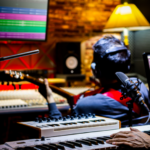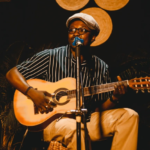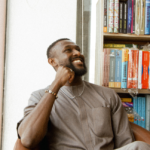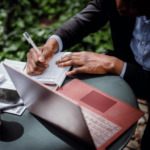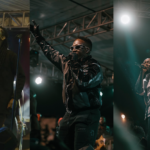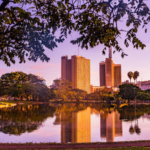DOWN SYNDROME: ABILITY IN DISABILITY
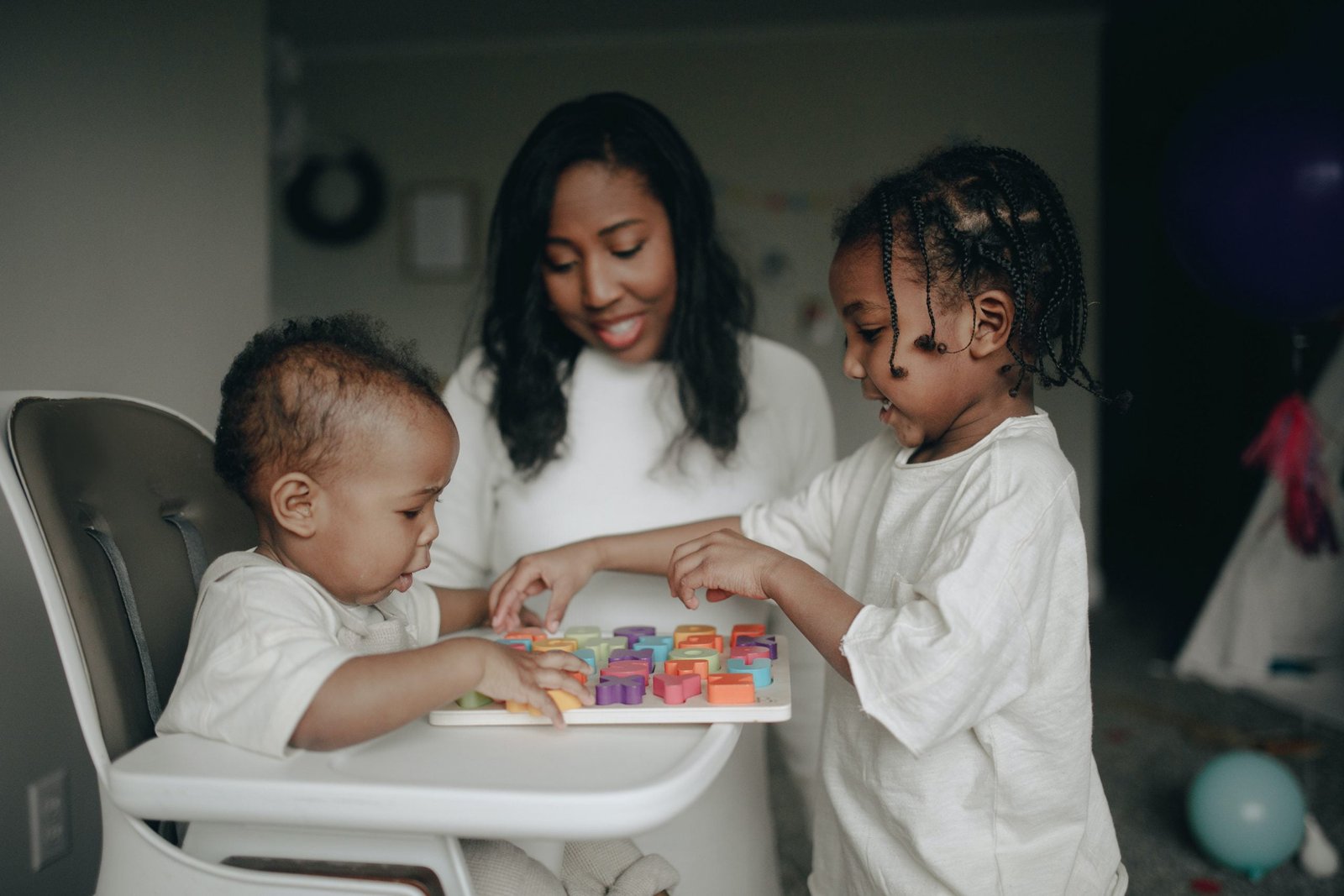
I remember seeing this guy back in London in 2015 and thinking to myself, “Damn, this guy has got a really big head, sitting on an even fatter neck?. Insensitive, right? Yes, VERY!
What I didn’t know however was that at that point, I was only a victim of my lack of knowledge. Now imagine a university graduate (myself), reasonably literate (for my level) as to health dynamics (at the time), not having the slightest clue as to what I saw; PURE IGNORANCE! I mean, who can blame me? Having lived over 20 years in my home country (Nigeria) and never seen anything like that, the sight before me was indeed strange and ‘funny’. Over time, I started to see and interact with more of these people. Some in care homes, others living and enjoying life freely. Interestingly, even the ones in care homes aren’t babied, but rather ‘supported’. This means they perform all of their activities themselves; they can read, write, eat on their own, have intelligent conversations, bathe themselves, use the toilet without help and go to school, among other basic activities. This brings to mind a very important question; Do we not have people with Downs syndrome in Nigeria? Obviously, just like any other society, we do. I am just wondering about why we never see them around, or have you seen them around? How many? How come so little is known about Downs syndrome in Nigeria? I’ll tell you why; the guardians of these people ‘hide’ them away from society because they view them as a source of shame, sadness and reproach, forgetting they are also human beings.
Fast forward to 2017, I was at this hotel in Turkey, and the receptionist that attended to me had Downs syndrome, but that did not get in the way of performing his duties as a receptionist as He passed information properly, we even shared a couple of jokes about the jersey I wore (Manchester United football club), before I departed to my room. Similarly, If you know your way around Luton (in the UK), the Tesco shop in the Luton mall has an attendant with Downs syndrome that works just as fine as the other ‘normal’ attendants. More recently, a video was floating around Twitter Nigeria of a father (Dr Seyi Roberts) celebrating His son (Adedamola) who just won his 5th special Olympic Gold medal in swimming and 1st bronze for Nigeria at the Abu Dhabi world games.
My brother Damola born with Down’s syndrome won his 5th Special Olympic Gold medal in swimming and 1st bronze medal for Nigeria at the Abu Dhabi world games. Please watch this clip of my Dad talking about him. #SpecialOlympicspic.twitter.com/5VKNr9tzhL
— Mr. Roberts (@DemiladeR) April 2, 2019
All of this just goes to show you that people with Downs syndrome are not ‘evil spirits’ or a ‘disgrace’ as we make them out to be in this part of the world, They only require special attention, therapy, Love, care and patience as tools to leading a life as normal as possible.
On the international scene, people living with Downs syndrome have made their mark on society, growing to be big achievers, famous and influential people in the society. Take Luke Zimmerman for instance; a famous American actor best known for his role as Tom Bowman on ‘The secret life of an American Teenager’. I can go on and on calling names.
Bringing it back home, in 2018, for the first time in my life, in Nigeria, (keep in mind I have lived in Nigeria for over 2 decades), I saw a man living with Downs syndrome in Jos, Plateau state. This man stopped a taxi I was in and tried to get in as every ‘normal’ passenger would, and to my utmost surprise (I cannot make this up), the woman He was to sit next to alighted. Yes, you read it right, SHE STEPPED OFF THE TAXI! According to her, She had reached her destination; an obvious lie, all because she did not want to sit next to him. Can you start to process how this man must be feeling at this time? A roller-coaster of sad emotions, definitely. To make matters worse, this man was brachycephalic, drooling, had his tongue displaced and sticking out of his mouth, struggling with speech (typical evidence of downs syndrome) and looked unkempt, just to describe him in few words. Like you may have already figured, people were already making fun of this man. Now as much as I can go on and on blaming this woman for being a let-down as to what humanity stands for, WE have to bring certain things to perspective.
- Why was this man roaming around on his own, without any help in the first place?
- Is an individual of this standing supposed to be left alone to cater to himself? Especially in this manner?
- What happened to his family; the people responsible for him?
- Is there anyone even responsible for this man?
- Is there any provision for people like this in our society by the government?
- Do we even have relevant Data as to people living with Downs syndrome in Nigeria?
I’m sure if you ask Dr Seyi about his son; Adedamola, He will tell you about how much effort, time, patience, love and money they (his family) have invested into training and nurturing their son to make Him this celebrated masterpiece He is today. I won’t even bother with the examples I gave earlier because all of these people I made examples of in the 2nd paragraph of this text live in functional societies, and that afforded them the opportunity to get a shot at life. I wish the same can be said about our own society.
Throwing the discussion open, I dare you to pick 10 people in Nigeria, adults actually, learned ones, and ask them about Downs syndrome. The ratio of informed to uninformed people will blow your mind. Think I am lying? Go ahead, try it! Now ask yourself what chance these people have at leading a normal life in a society that doesn’t even know about, or acknowledge them to start with; OUR SOCIETY.
A society without provision for citizens with special needs, a society that is without a functional health structure. Taking Dr Seyi as an individual, His son would not have achieved everything he has achieved if He did not have a strong support system, learned parents, a loving family and above all, ‘wealthy’ parents. Now think about other people who are/were born with Downs syndrome, whose parents cannot afford special needs education, therapy and the likes, what happens to them? As much as we celebrate Adedamola, it is worthy of note that for every ‘Adedamola’ we see, there are 100 others that won’t get to experience the love, care and resulting development He is experiencing. What then is the way forward? The onus is on us; YOU and I, TO READ, GET OUR COUNTENANCE SHARPENED AND ULTIMATELY GET OURSELVES ACQUAINTED WITH HEALTH MATTERSAS IT AFFECTS US. The government may not have provision for certain health demands, but you and I can make a difference. Start by showing love to that neighbour of yours with Downs syndrome, berate his or her parents/guardians for always locking them away from society, make it a point of duty to ensure that that neighbour of yours with Downs syndrome is allowed to experience life to the fullest, and allowed to live freely, hold their parents and guardians accountable whenever it is needed, and finally be a voice wherever you find yourself, holding our leaders accountable as only then can we build a better society. Just so you know, there is no definitive research that shows a direct cause of Downs syndrome, It is genetic and can happen to anybody. All other ‘causes’ are speculative at best. I say this to say, ANYBODY, CAN BIRTH A CHILD WITH DOWNS SYNDROME. So if you shy away from this problem because it is not yours today, it could be yours tomorrow, what then happens?
On a final note, we all at Sarauta celebrate an icon that is Adedamola; A perfect definition of the ability there is in disability. We celebrate the tenacity, doggedness and most importantly the fighting spirit you and your family have displayed. Here is to wishing you many more positive strides and accolades. Hopefully, you blaze the trail for positivity in this regard.
Side note: This is not a piece about Downs syndrome, it is a piece challenging you as an individual to FIND OUT about Downs syndrome as KNOWLEDGE IS POWER!
Cheers.

